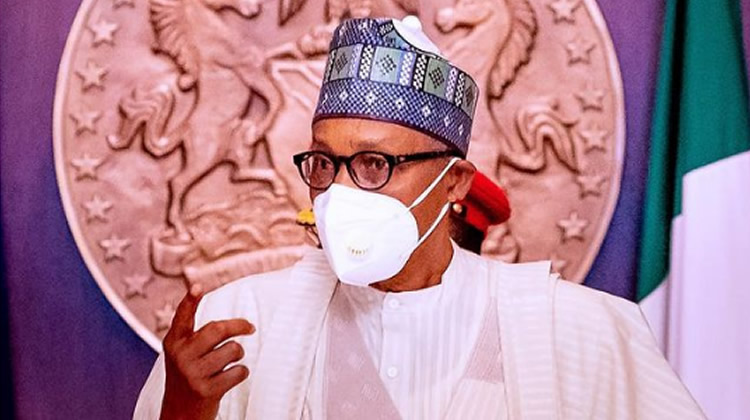On Wednesday, December 1, 2021, President Muhammadu Buhari jetted out of the country yet again on another foreign trip, this time to Dubai, United Arab Emirates, to attend an exhibition accompanied by an entourage of 10 ministers and heads of the nation’s security agencies.
This is coming shortly after a few weeks travels to Saudi Arabia, Scotland, France and South Africa, and a few hours after Nigeria recorded three cases of the new coronavirus variant named Omicron.
In all, of the six years that he has been in office so far, President Buhari has travelled 130 times to 36 countries altogether, spending about 308 days.
According to the presidency, some of the trips were to seek foreign direct investment to Nigeria and others for the purpose of honouring invitations by countries with whom we have strong relations across various fields of endeavour. Indeed some of the trips were necessary to help resolve emerging political and economic issues in view of our leading role in Africa and beyond. Nonetheless, we recall that two years ago in 2019, the Presidency through the office of the Secretary to the Government had cause to slash the frequent overseas trips by minsters and top government officials.
Conveying this decision through the Director of Information of the OSGF, Willie Bassey, the statement said “In a bid to curb leakages and ensure efficiency in the management of the resources of government, President Buhari has approved for immediate implementation additional cost-saving measures aimed at instilling financial discipline and prudence, particularly, in the area of official travels.’’
The most recent visit to Dubai in which the president was accompanied by such a high number of officials negates the spirit behind this measure by the government. Considering that these top-level officials on the entourage, almost one-third of the cabinet, will be accompanied by their officials and aides, we are talking about scores of public officials on an all-paid, five-day junket to a programme in which Nigeria should have been represented by a far lesser entourage.
Apart from the state visits that require his presence as president and head of state, some of the trips the president embarked on did not necessarily require his physical presence. Indeed some trips that have to do with bilateral economic issues could as well be handled by the vice president, who is in charge of economic matters. Those that are of specific subject matter, like security, trade and others, could be left to ministers and heads of respective agencies to attend with a small number of officials and then brief the president upon their return.
It must be said that on cost-benefit terms, the dividends of President Buhari’s visits have not been as spectacular as Nigerians expected. We are yet to see the direct foreign investments translate into jobs for our unemployed young men and women. Also, we have not witnessed the race by foreign industrial concerns to establish industries that will help boost technology transfer, raise our exports and gross domestic product.
In fact, it is curious that while the president all too often finds reasons to embark on foreign trips at the slightest opportunity, he almost always needs to be persuaded to visit the states and communities within Nigeria that are deserving of his presence. Indeed, it has been observed that on the occasion he visits the states, he hardly stays long enough to make them meaningful to the people.
We believe that in the remaining months of his tenure, President Buhari should cut down drastically, his foreign trips and should travel abroad only where it is absolutely necessary for him to do so. He should turn his attention inwards and undertake visits to states and communities in the country and engage with them more. The country and its citizens require his attention.

 Join Daily Trust WhatsApp Community For Quick Access To News and Happenings Around You.
Join Daily Trust WhatsApp Community For Quick Access To News and Happenings Around You.


